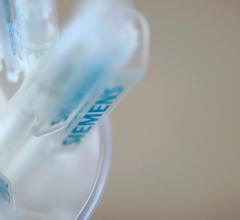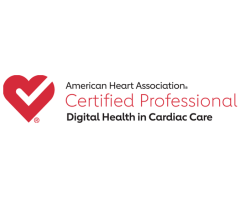April 29, 2019 — New medical technology offers the promise of improving patient care, as well as the potential for harm if caregivers are not sufficiently educated about its operation and use. Without a comprehensive approach, caregivers may learn how to use complex technology at the patient’s bedside, through trial and error, instruction manuals or informally from their colleagues. An article in AACN Advanced Critical Care1 describes how Memorial Hermann Health System in Houston developed an interdisciplinary fail-safe process to analyze and scale training for use of medical devices, with a risk assessment tool to predict the severity and frequency of potential harm to patients.
One of the largest not-for-profit health systems in southeast Texas, Memorial Hermann has 14 hospitals of its own, five others operated through joint ventures, and numerous specialty programs and services throughout the Greater Houston area. From 2012 through 2018, more than 100 medical devices have gone through its fail-safe assessment, with 46 percent receiving the highest level of scrutiny and education due to the risk assessment.
The journal article, “Optimizing Fail-Safe Use of Complex Medical Devices,” describes the key factors that contribute to adverse patient safety events and the principles underlying high-reliability organizations. The article includes the tools and worksheets used by Memorial Hermann staff for each phase of the process, from initial device request through compliance tracking and reporting. Four case scenarios summarize how the fail-safe review was applied to different clinical situations and review the outcomes of the education required before rollout of the device.
Co-author M. Michael Shabot, M.D., is executive vice president and chief clinical officer for Memorial Hermann.
“Patient safety has been our single core value for more than 10 years,” Shabot said. “The fail-safe process exemplifies our commitment to ensuring patient safety, preventing harm and using high-reliability principles at every level of the organization. Given the growing complexity of technology, clinician education and training are crucial to patient safety.”
Memorial Hermann’s fail-safe process is designed to eliminate human error during medical device use through standardized and evidence-based education and training.
Before a medical device is approved for patient care or even enters the fail-safe process, it undergoes an in-depth evaluation led by the supply chain department. The evaluation includes a cost-analysis review, trial use and feedback from stakeholders and end-users.
Medical devices that qualify for fail-safe assessment can be new devices, those with new functionality or updates, or substitute or replacement technology.
After a device is evaluated and approved for purchase, the process assesses potential risks, identifies varying levels of required education and training, and mandates competency reporting. Integrating new technology into patient care requires that clinical staff be competent in the operation of all approved new and updated medical devices.
The article is part of a symposium published in the spring 2019 issue of the peer-reviewed AACN Advanced Critical Care that addresses several key facets of selecting and implementing complex patient care technology.
JoAnne Phillips, DNP, RN, CNS, CPPS, served as editor for the symposium. She is director of clinical practice at Virtua Health System in Marlton, N.J.
“Complex patient care technology is no longer limited to operating rooms and critical care units and can be found through the continuum of care,” she said. “The articles in this symposium focus on processes and strategies that can be used to successfully integrate innovative devices and technology into patient care.”
For more information: www.acc.aacnjournals.org
Reference
1. Hercules P., Shabot M.M., Ryan T., et al. Optimizing Fail-Safe Use of Complex Medical Devices. AACN Advanced Critical Care, Spring 2019. doi: 10.4037/aacnacc2019400


 November 14, 2025
November 14, 2025 









